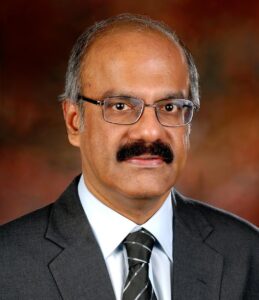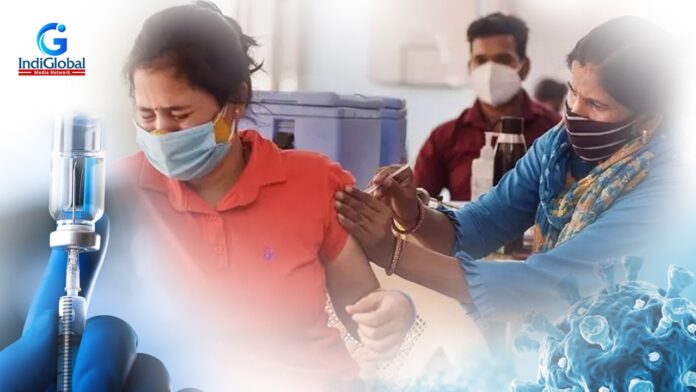IndiGlobal Media Bureau
Covid 19 vaccination coverage in India has exceeded 180.60 crores as on March 16th, National Vaccination Day.
This Day was first observed in 1955 to convey the importance of vaccination in the country. At that time, it was the Pulse Polio vaccine that was very important.
On March 16th, 2022, India has started vaccination for children between 12 to 14 years of age. These children are being given free vaccine Corbevax manufactured by Biological E Limited, Hyderabad.
Also, those above 60 years who are eligible for precautionary doses are being provided booster dose after 9 months of two doses according to the statement by the Central Ministry of Health.
On National Vaccination Day experts opine:
 Dr D Nageshwar Reddy, Chairman of Asian Institute of Gastroenterology and Past President of World Endoscopy Organization, Telangana:
Dr D Nageshwar Reddy, Chairman of Asian Institute of Gastroenterology and Past President of World Endoscopy Organization, Telangana:
It was somewhere around year 1800 when vaccination against Smallpox began in India, since then we have come a long way not only in extensively providing quality immunization for our children but also establishing our country as a global hub for vaccine manufacturing. We showcased our efficiency in executing large-scale immunization programs with BCG and Oral Polio Vaccines and now we have set a new benchmark with COVID vaccination.
 Today, we have a rich inventory of vaccines that are highly efficacious and cost-effective to fight numerous infectious diseases. There should be large-scale public awareness programs on various kinds of vaccines with similar enthusiasm like COVID. For example, although Hepatitis B vaccinations have been integrated in the Universal Immunization Program (UIP), only half of the children population are immunized. Hepatitis B vaccination significantly reduces the chances of developing Hepatocellular Carcinoma (Liver Cancer) in the future.
Today, we have a rich inventory of vaccines that are highly efficacious and cost-effective to fight numerous infectious diseases. There should be large-scale public awareness programs on various kinds of vaccines with similar enthusiasm like COVID. For example, although Hepatitis B vaccinations have been integrated in the Universal Immunization Program (UIP), only half of the children population are immunized. Hepatitis B vaccination significantly reduces the chances of developing Hepatocellular Carcinoma (Liver Cancer) in the future.
In coming years, we will see more indigenous vaccines as government bodies like the Department of Biotechnology, Council for Scientific and Industrial Research (CSIR), Indian Council of Medical Research (ICMR), National Institute of Immunology, are actively collaborating with institutions like Asian Healthcare Foundation (AHF) for vaccine research while providing the required momentum to the indigenous vaccine development.
 Dr Shyamala Iyengar, Senior Consultant Internal Medicine, Apollo Hospitals, Telangana:
Dr Shyamala Iyengar, Senior Consultant Internal Medicine, Apollo Hospitals, Telangana:
This Covid 19 pandemic has made the general public aware of the power of vaccination. Getting vaccinated against COVID-19 has lowered our risk of getting and spreading the virus that causes COVID-19. Vaccines can also help prevent serious illness and death. There are a number of diseases that are preventable due to vaccination. Despite a significant increase in immunization coverage in India, about two-thirds of all types of deaths in children aged below five years of age are due to diseases that can be prevented by vaccines. So the impetus given to the covid vaccination program should be further extended to vaccination against other diseases as well.
 Dr Asmita Mahajan, Consultant Neonatologist and Paediatrician, S L Raheja Hospital, Mumbai, Maharashtra:
Dr Asmita Mahajan, Consultant Neonatologist and Paediatrician, S L Raheja Hospital, Mumbai, Maharashtra:
Vaccination acceptance in India is now complete as those between 12 to 14 years are being vaccinated with Corbevax. These two doses will be given 28 days apart.
This approval will now help us expand the vaccination drive and reach out to vulnerable children. As colleges and schools start offline activities this vaccine is an essential step in boosting children’s immunity. It will also provide parents the required peace of mind and confidence to send their children back to school. Vaccines work as we have seen during the time of the Omicron variant and all of them must opt for it. They are safe and protection is provided from severe disease.
Many diseases have been overcome by vaccination and the provided protection will also help against future variants.








